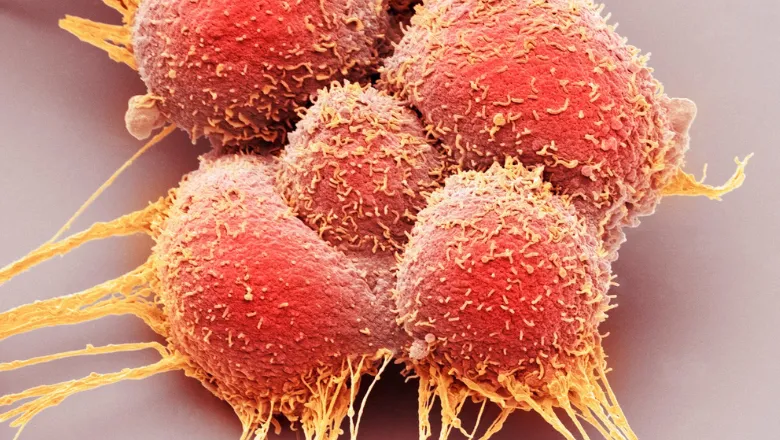We generated prostate tumour avatars from more than 80 patients and showed how key features of the tumour that drive its aggressiveness and invasiveness are mediated by well-known TGF-b pathway. We hope these results might inform new therapeutic approaches.”
Dr Giancarlo Forte, Senior Lecturer in Cardiac Mechanobiology
22 November 2023
Prostate cancer grows and spreads through cell messaging system
A new publication shows how prostate cancer cells hijack a specific cell messaging system for their development and to facilitate their spread to other parts of the body.

The study, published in Matrix Biology, focused on the TGF-β signalling pathway, which begins when a molecule called the Transforming Growth Factor beta (TGF-β) attaches to a receptor on the cell’s surface. The attachment triggers a series of events inside the cell, activating different proteins and molecules that control what the cell does, like growing and dividing.
By studying tissue samples from patients with prostate cancer, Dr Giancarlo Forte and his team, in collaboration with the International Clinical Research Center of St. Anne’s University Hospital Brno, Czech Republic, found that key features of the tumour are controlled by the TGF-β pathway.
In order to understand the role of the TGF-β pathway in prostate cancer, the researchers developed artificial tumours in the lab. These were based on tissue samples from patients who had recently been treated with a radical prostatectomy – a surgical procedure to remove some or the whole of the prostate gland. They focused their experiments on adenocarcinomas, which is a type of cancer that develops in the cells of the glands and tubes lining the prostate.
A hallmark of the development of adenocarcinomas is to make changes to the extracellular matrix (ECM) which is the network of molecules that connect neighbouring cells, providing structural support and facilitating some of the cell’s most important molecular processes.
It is already well known that the TGF-β signalling pathway is involved in the development of other types of cancer cells. When experiments modified the signalling pathway, it was shown to be a key trigger in re-shaping the ECM. This not only instigates the development of cancer cells but also allows them to migrate to a different part of the body.
The ECM changes help to trigger an epithelial-to-mesenchymal transition (EMT) within cancer cells, that gives the cells the ability to move, allowing it to migrate to other sites in the body. This serves as a key step in prostate cancer developing towards a later metastatic stage of the disease.
Together, these findings highlight the role of TGF-β signalling in the development of prostate cancer and adenocarcinomas.

